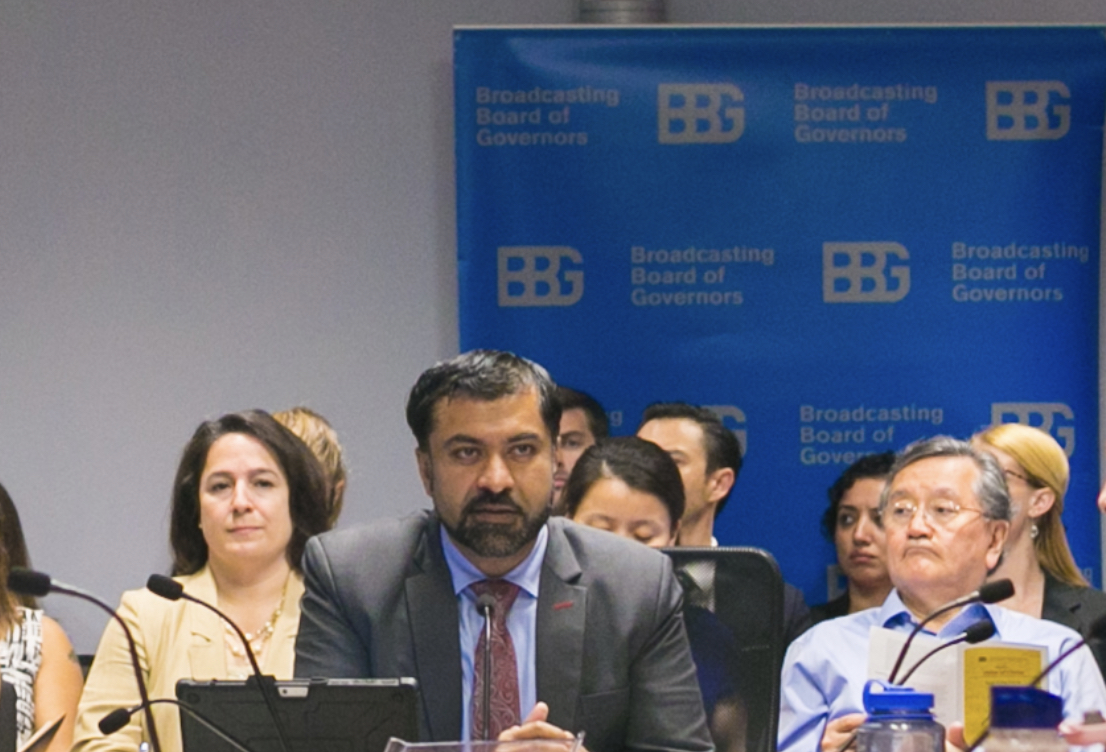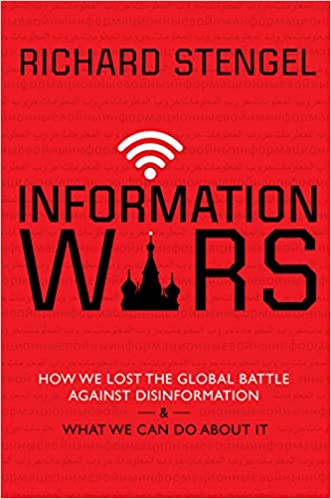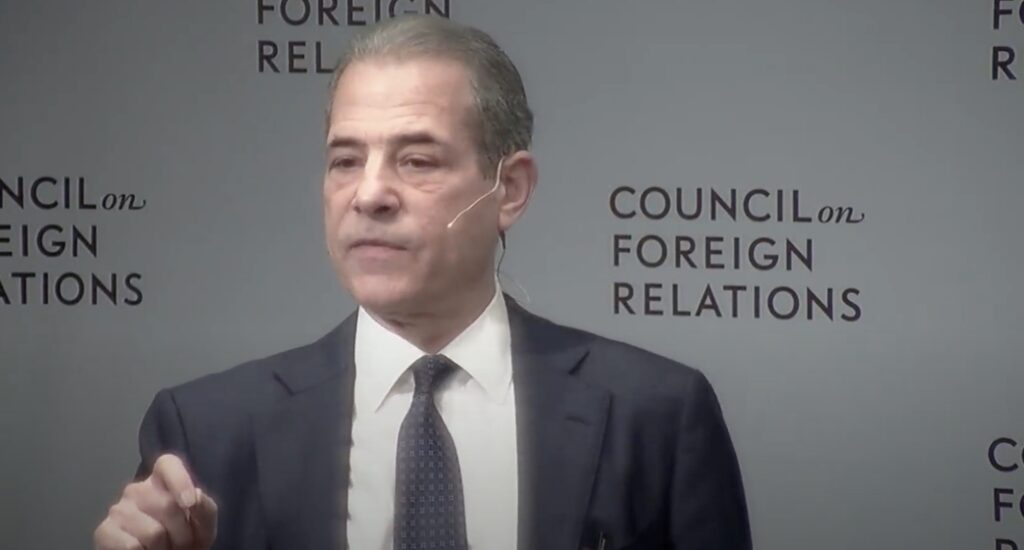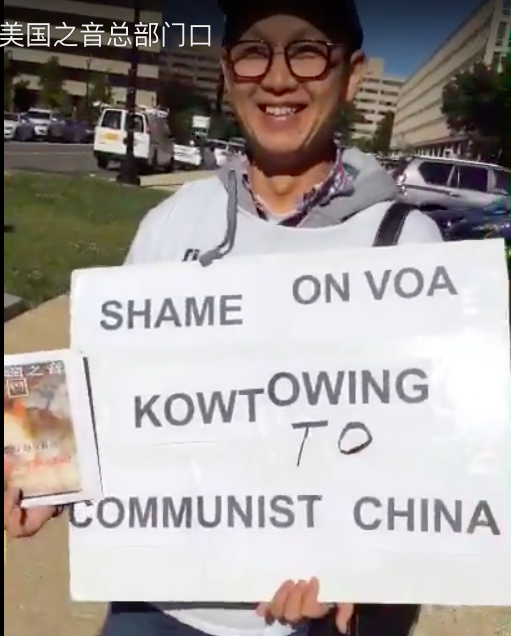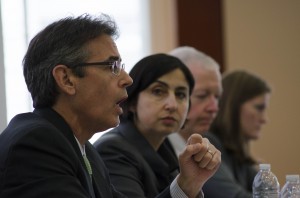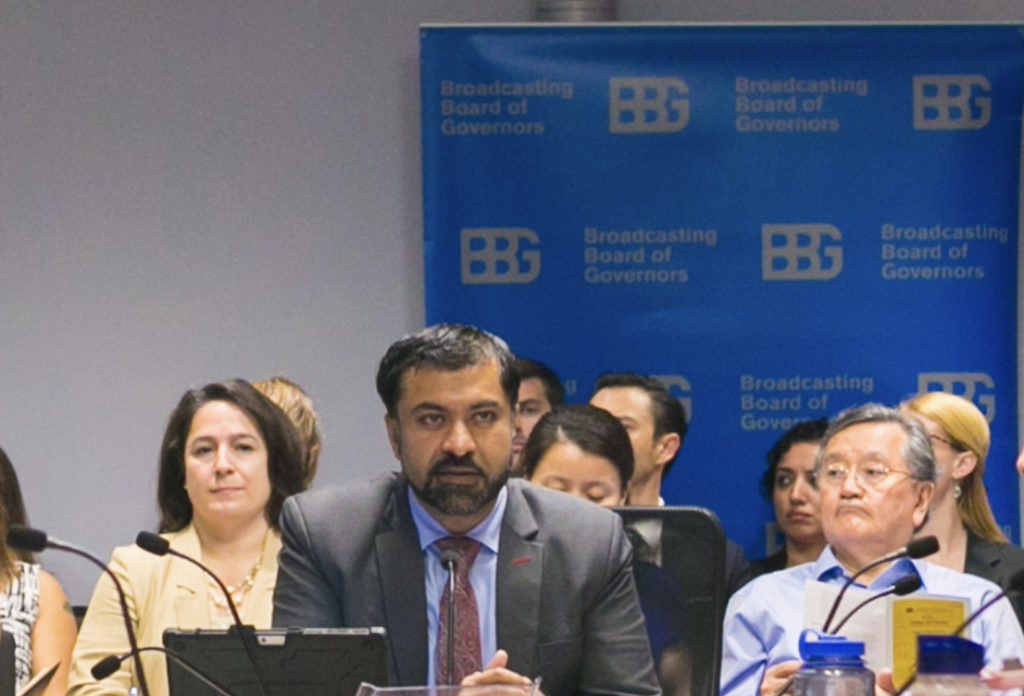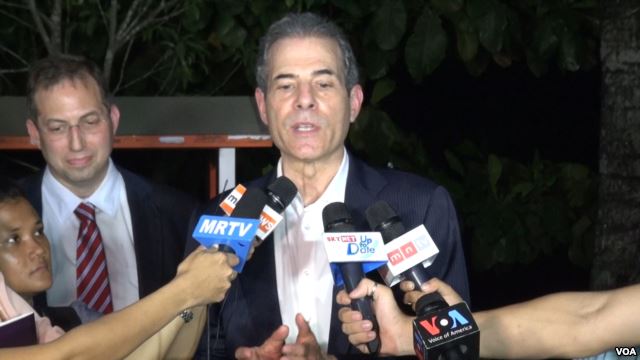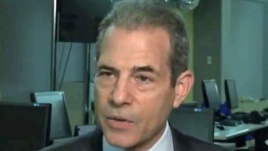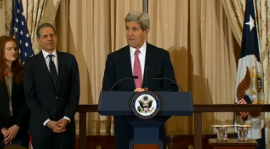USAGM Watch Commentary
President Obama’s Under a Secretary of State for Public Diplomacy and Public Affairs Richard Stengel heaped praise in his 2019 book, Information Wars: How We Lost the Global Battle Against Disinformation and What We Can Do About It, on his former special advisor Haroon Ullah who was later caught by an employee stealing taxpayers’ money from the U.S. Agency for Global Media (USAGM), pleaded guilty to embezzlement and spent time in a federal prison. Stengel was named by President-Elect Joe Biden to lead the transition at USAGM. After working for Stengel at the State Department, Haroon Ullah was also chief strategic advisor of former Broadcasting Board of Governors (BBG) CEO John F. Lansing, expanding his impact from the State Department working for Stengel to the $800 million agency in charge of the Voice of America (VOA), Radio and TV Marti to Cuba, Radio Free Asia (RFA), Radio Free Europe/Radio Liberty (RFE/RL) and Middle East Broadcasting Networks (MBN).
On June 16, 2015, my special advisor on counterextremism [sic], Haroon Ullah, and I were at the Los Angeles International Airport, coming back from a workshop he had organized for Hollywood writers, producers and executives to meet content creators from the Middle East. It was an inaugural event of a series we have put together with the Annenberg Foundation Trust at Sunnylands. We had spent two days in a hotel on a beach in Santa Monica talking about how to create a counter-ISIS narrative in the Middle East. One of the Middle Eastern producers suggested developing an animated feature film starring a Muslim superhero who wiped out ISIS.
Richard Stengel, Information Wars: How We Lost the Global Battle Against Disinformation and What We Can Do About It (New York: Grove Press, 2019), 245.
Haroon Ullah made himself indispensable on CVE [countering violent extremism] and plenty else besides.
RICHARD STENGEL, INFORMATION WARS: HOW WE LOST THE GLOBAL BATTLE AGAINST DISINFORMATION AND WHAT WE CAN DO ABOUT IT (NEW YORK: GROVE PRESS, 2019), 376.
Haroon Ullah became an indispensable superhero advisor to Richard Stengel and later to John Lansing, who at the Broadcasting Board of Governors (renamed the U.S. Agency for Global Media in 2018) was another Obama administration era appointee. Lansing also repeatedly praised Ullah as his chief strategic advisor for the entire government agency in charge of U.S. international broadcasting and other media outreach abroad and failed to uncover the ongoing theft of federal funds by his top aide working closely with him and for him. Ullah’s crime of falsifying travel invoices was discovered by an employee whose warnings were initially dismissed by higher-level USAGM managers working for Ullah and Lansing. Some of these managers remained at USAGM. Trump-appointed USAGM CEO Michael Pack, who was did not take up his position until June 2020 due to a years-long delay of his Senate confirmation, has suspended some managers, but he also became a target of relentless criticism by The Washington Post, The New York Times, The Hill, NPR, CNN, MSNBC and other liberal media outlets.
Pack’s future at USAGM is uncertain in the upcoming Biden administration even though technically his appointment is for three years. But Stengel and Lansing, both high-level U.S. government officials in the previous administration, were easily deceived by a person whom they regarded as an outstanding expert on countering disinformation.
Stengel may have a say in selecting the next USAGM CEO. According to an article in VOX, quoting Andrew Bates, a spokesperson for the former vice president’s campaign, Biden definitely wants to fire Michael Pack.
While Lansing has been since October 2019 CEO of National Public Radio (NPR) after resigning from USAGM following a series of management and programming scandals and has not been heard much from recently, Richard Stengel is again in the news after his appointment by President-Elect Biden to lead the advisory transition team at USAGM, with most of the recent coverage being negative.
After his appointment by Biden, Stengel has been most frequently criticized for his Washington Post op-ed, in which he advocated restrictions on free speech in the United States to combat hate speech. Stengel’s Washington Post op-ed was also criticized in both liberal and conservative media immediately after it was published in late October 2019.

The fact that Stengel thought extremely highly of Haroon Ullah, mentioned him twice in his 2019 book, thanked him and relied on his advice on public attitudes in Muslim countries and on setting U.S. strategy on countering terrorism does not inspire much confidence in Stengel’s qualifications and abilities as President Biden’s key person to lead the transition at the U.S. Agency for Global Media which is in charge of U.S. government-funded international broadcasting.
According to two individuals who attended closed meetings of the Broadcasting Board of Governors in 2016, Stengel, as the then Under Secretary of State for Public Diplomacy and Public Affairs representing Secretary of State John Kerry who was an ex officio BBG Board member, aggressively pushed the Obama White House policy on relations with the Castro brothers’ communist regime in Cuba and questioned the mission of Radio and TV Marti broadcasts to the island produced by the Office of Cuba Broadcasting (OCB) in Miami, FL.
Critics, however, find it ironic that the person chosen to have influence over a U.S. government agency charged with promoting free speech and free press abroad seems to think that Americans enjoy too much freedom to express their opinions.
Jonathan Turley, an American legal scholar, legal analyst in broadcast and print journalism and a professor at the George Washington University Law School made this point when he criticized Richard Stengel for his views on free speech.
So in a nation filled with gifted people to lead the effort on government media policy and positions, Biden selected a person who rejects the very essence of free speech. Stengel promises the “unity” of a nation silenced by government speech codes and censorship. If no one has a megaphone, free speech is no longer a problem.

